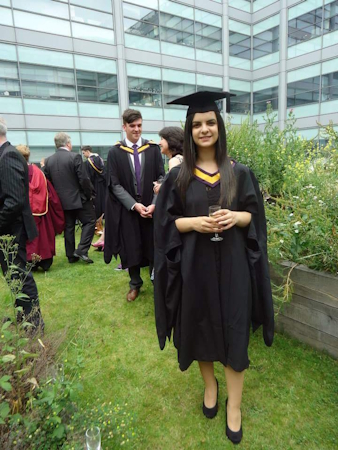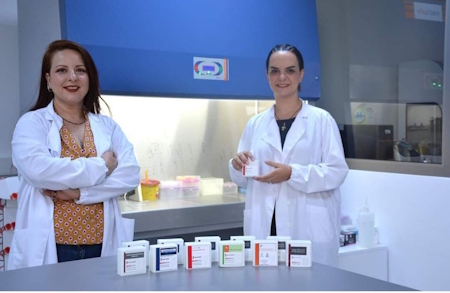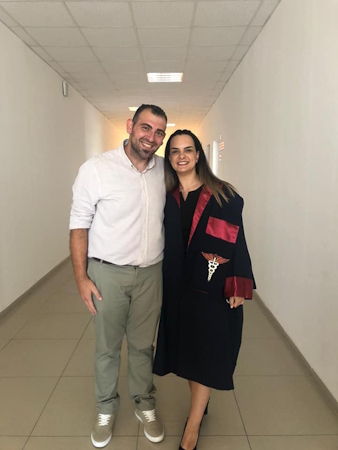
In this exclusive interview, Dr. Gülten Tuncel, a distinguished researcher at the DESAM Research Institute, shares her inspiring journey in the field of molecular genetics. From her academic roots in Northern Cyprus to her groundbreaking contributions to diagnostic research, Dr. Tuncel discusses the influences that shaped her career, the lessons learned through collaboration, and her vision for the future of science. Her dedication to innovation and her commitment to creating inclusive opportunities in the scientific community highlight the transformative power of research.
“The achievements and perseverance of women in science have been incredibly motivating.”
Is there someone who inspires you in the research world? How has this person’s journey or approach influenced you?

“Collaboration enhances creativity and allows us to tackle complex problems more effectively.”
What is the most important thing you have learned while collaborating with your team members or mentors?

Can you share a method you’ve developed to manage time efficiently and handle stress in your research career?

How do you aim to develop an innovative perspective by going beyond traditional approaches in your research field?
To develop an innovative perspective in the field of molecular genetics, I focus on actively learning new methodologies and staying at the forefront of emerging techniques. This involves consistently keeping up with the current literature to ensure that my research incorporates the latest advancements and discoveries. Additionally, I attend workshops and specialized training sessions to acquire hands-on experience with cutting-edge technologies, which allows me to apply novel approaches in my own work. Networking at scientific congresses has also been invaluable, as it provides opportunities to exchange ideas with experts in the field, learn about different research strategies, and identify potential collaborations. By combining continuous learning with active engagement in the scientific community, I aim to challenge traditional approaches and contribute to the development of more innovative, interdisciplinary solutions in molecular genetics.
“Our goal is to develop advanced diagnostic tools to transform healthcare and enable personalized treatment strategies.”

In DESAM Kit Production Laboratory, we are focused on developing real-time PCR kits designed for the rapid and accurate detection of pathogenic microorganisms with the valuable insights and experiences we gained during the Covid-19 pandemic. These kits aim to provide reliable results, which are essential for timely treatment and containment of infectious diseases. In parallel, we are working on next-generation sequencing (NGS) kits for the detection of rare metabolic disorders. By harnessing the power of NGS technology, our goal is to improve the diagnosis and understanding of these complex conditions, which often remain undiagnosed or misdiagnosed due to their rarity and genetic complexity. Our work is driven by the belief that advanced, accessible diagnostic tools are key to transforming healthcare and enabling better, more personalized treatment strategies in the future by contributing to the current knowledge.
Dr. Gülten Tuncel Biography
Gülten Tuncel was born and raised in Kyrenia, Northern Cyprus. She graduated with honors from 19 Mayıs Türk Maarif College in 2009 and went on to complete her undergraduate studies in Genetics (BSc) at The University of Manchester, graduating in 2013. In 2016, she earned her Master’s degree from the Faculty of Biological Sciences at Middle East Technical University. In 2021, Gülten completed her PhD in Molecular Medicine at Near East University, with a thesis titled “New Candidate Gene for Joubert Syndrome: CC2D1A.” Since then, she has been a full-time member of the DESAM Research Institute, where she also played a key role in establishing the DESAM Kit Production Laboratory in 2021. She continues to work at the laboratory, where, alongside her colleagues, she has contributed to the development of over ten diagnostic PCR kits and participated in numerous international research projects. Gülten’s research interests include molecular diagnostic techniques, genome sequencing, and rare genetic disorders. She has authored over 40 papers in prestigious international journals and has actively participated in several national and international conferences. In recognition of her outstanding research performance, Gülten was awarded the NEU Young Researcher Encouragement Award in both 2021 and 2022.